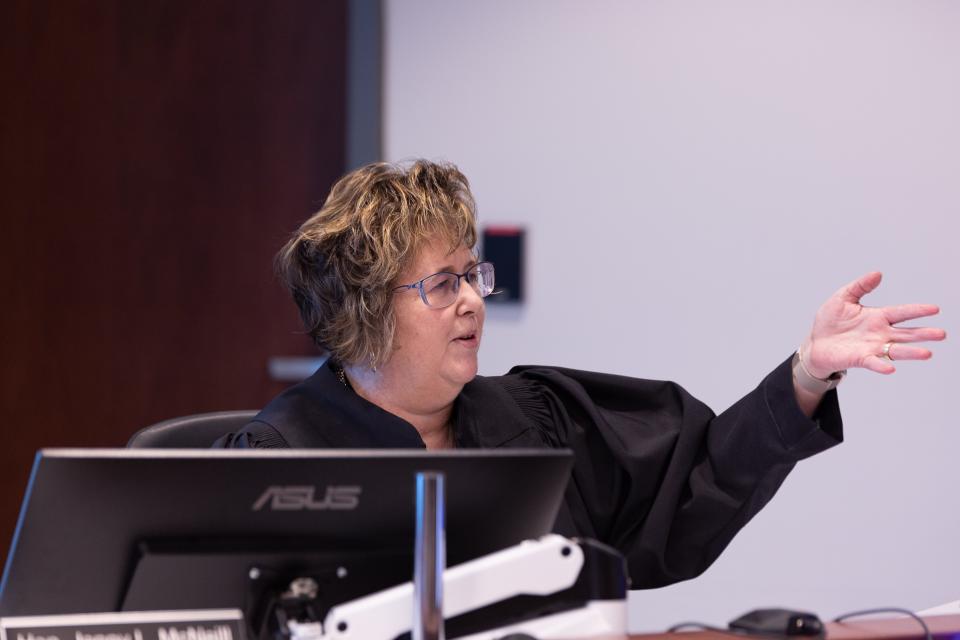My Take: Judge got it wrong in closed hearing decision
When I first read of Judge McNeill’s decision to have a closed hearing on the Hambley settlement, I was stunned. In 30 years of practicing law, I have never heard of any other civil case in which a hearing was not open to the public nor where the transcript was not released either to the public or the media.
Judge McNeill's order in this case is frankly incredible, particularly where there is huge public interest, and the ruling affects the entire county.
More: Judge denies request to release closed courtroom transcript
I did some research on the issue, and it appears that Judge McNeill's decision to close her court erroneously draws from a section of the Open Meeting's Act MCL 15.268(e) which allows a “Public Body” ... "To consult with its attorney regarding trial or settlement strategy in connection with specific pending litigation, but only if an open meeting would have a detrimental financial effect on the litigating or settlement position of the public body."
So it was legally acceptable for the board meeting to go into closed session to discuss the Hambley settlement. However, it is a wild extrapolation for the court to use that MCL 15.268 to put the Court itself into a closed session, as a court is not a “Public Body” as that term is defined by the Open Meetings Act MCL 15.262(a): “Public body” means any state or local legislative or governing body, including a board, commission, committee, subcommittee, authority, or council, that is empowered by state constitution, statute, charter, ordinance, resolution, or rule to exercise governmental or proprietary authority or perform a governmental or proprietary function; a lessee of such a body performing an essential public purpose and function pursuant to the lease agreement; or the board of a nonprofit corporation formed by a city…”

The circuit court is not a “public body,” and a court hearing is not “meeting” under the Open Meetings Act, consequently MCL 15.268(e) should not have been used by Judge McNeil to bootstrap a court hearing into a closed hearing where even the transcript is not made public. The public policy of the state is to keep meetings as open as possible. “the Act is to be strictly construed against exemptions to public meetings. Ridenour v. Board of Education, 111 Mich. App. 798 (1981). “Strict construction must be given to closed-door exceptions provided in the act in order to limit the situations in which meetings are not open to the public.” Detroit News, Inc. v. Detroit, 185 Mich. App. 296, 460 N.W.2d 312 (1990).
There are few statutes that do allow a closed hearing by a court, but these typically involve very personal matters that are not of public interest such as cases involving minors, or whether a person’s medical records should be released, or if someone is mentally incapacitated such that a guardian should be appointed. After extensive searching on Lexis, I could not find a single Michigan case in which a civil suit for money damages such as the Hambley case involved a closed court hearing.
In the Hambley case, we have a matter that is of extreme public interest that has been closely followed on a daily basis, in which the actions of elected officials have been called into question, and the court’s ruling will have a significant effect on the county’s finances for years.
If the county wants to avoid having its employment decisions litigated in a forum that is open to the public then it should put arbitration clauses in all of its employment agreements. The Sentinel should appeal this decision. Allowing a court to shelter government decisions from public scrutiny is a terrible precedent, and it is contrary to the intent of the Open Meetings Act.
Secrecy in local government should never be the paramount concern.
— Scott Mancinelli is a local attorney with the firm Mancinelli Goeman Law Group PC. His areas of practice is civil litigation including contracts and employment law.
This article originally appeared on The Holland Sentinel: My Take: Judge got it wrong in closed hearing decision

